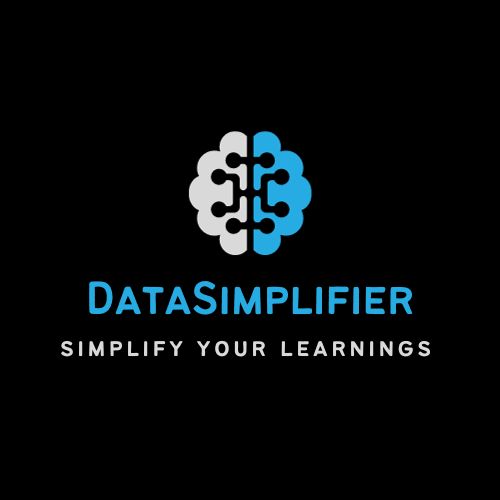If you are new to data field and thinking how long does it take to learn SQL for data analysis, then this article is for you.

Today, we’ll cover a topic that is often the first stepping stone in your data journey: learning and mastering SQL from scratch. To be honest, answer for this question really depends on lot of factors but if you are highly resilient and determined to learn SQL, you can master basic SQL concepts in just 1 month from scratch. But there are lots of caveats to it, so, I would recommend to read this complete article to understand its essence.
SQL: The Language of Data
Structured Query Language, or SQL, is the backbone of every data field, whether its data analysis or data science. It’s the universal language used to communicate with relational databases, making it an essential skill for anyone looking to dive into the world of data.
How long does it take to learn SQL
I have broken the question “How long does it take to learn SQL” into 4 parts based on proficiency level you target:
- Basic SQL concepts (2-4 Weeks)
The journey begins with mastering the basics. In this initial phase, you’ll familiarize yourself with SQL syntax, understand how databases are structured, and learn to perform simple queries. Spend time on fundamental concepts like SELECT, FROM, WHERE, and ORDER BY. With consistent effort and practice, most students get a grasp of these essentials within 2-4 weeks.
- Intermediate Level (2-3 Months)
Once you’ve got the fundamentals down, it’s time to level up. The intermediate stage involves honing your query-writing skills, learning about JOINs, subqueries, and database design principles. This can take anywhere from 2 to 3 months of dedicated study and practice.
- Advanced Techniques (3-6 Months)
To truly become a SQL wizard, you’ll want to delve into more advanced techniques. This phase includes exploring window functions, stored procedures, and working with large datasets. While the duration varies, dedicating 3-6 months of intense learning is a reasonable estimate to become proficient in these areas.
- Real-World Applications (Ongoing)
Your SQL journey doesn’t stop at just proficiency level. The real magic happens when you start applying SQL concepts to solve real-world problems. As a data analyst, you’ll need to understand the specific databases and tools wisely in your industry. This continuous learning phase will keep on evolving with new challenges and databases, but you’ll be building on a solid foundation if you adapt yourself consistently.
Tips for Learning SQL Efficiently
- Consistency is Key: Dedicate a specific amount of time daily or weekly to work on SQL queries. Being consistent and regular will help you in solidifying your knowledge.
- Hands-On Practice: Apply what you learn to real-world datasets. There are many online platforms like Hackerrank offer a plethora of exercises and challenges.
- Seek Guidance: Don’t hesitate to ask questions and seek guidance from peers, mentors, or online communities. Seeking guidance from someone who is already expert in this field will definitely help you in long run.
- Stay Updated: The data world evolves rapidly. Keep yourself up to date with the latest industry trends and database technologies.
- Work on Projects: Build a portfolio of projects that showcase your SQL skills. Practical experience is really invaluable. Try to combine learning SQL with other technical skills. If possible and relevant to your field, you can work on projects combining SL & Tableau/ Power BI showcasing your data analytics skills. You can combine SQL with python to work on any data science or Machine Learning projects. You can refer this post to check top 5 projects for data analysis.
Alright, now let’s address some frequently asked questions which comes to our mind while learning SQL:
21-Day Learning Principle for SQL
Q: What about the “21-Day Learning Principle”? Is it applicable to learning SQL for data analysis?
A: The “21-Day Learning Principle” suggests that it takes approximately 21 days of consistent, daily practice to form a new habit or acquire a new skill. While this principle is often touted in various self-improvement contexts, it can also be applied in learning technical skills like SQL or Python. If you are consistent enough for learning something new, then that skill become habit in your life & gradually you like it.
Even though learning SQL, or any other skill for that matter, is not a one-size-fits-all process. The time it takes to become proficient can vary significantly from person to person. Some individuals might achieve a basic understanding in a few weeks, while others may take several months.
Consistency is crucial when learning SQL. It’s essential to practice SQL problems regularly to reinforce your knowledge. However, instead of focusing on a specific number of days, concentrate on steady progress. Establish a regular study routine that works for you, and set achievable milestones. With dedication and the right resources, you can make substantial progress in your SQL learning journey.
Remember that the path of learning SQL shouldn’t be bound by a strict 21-day deadline. It’s a gradual process that unfolds at your own pace. The key is to stay persistent, keep learning, and celebrate your accomplishments along the way. In the end, it’s the effort you put in and the commitment to your learning that matter most.
Background requirements for SQL
Q: Is it necessary to have a background in programming or databases to learn SQL?
A: Not at all! SQL is an excellent starting point for beginners who are new to the world of data analysis or data science. While some prior programming knowledge can be still useful but it’s not a prerequisite. SQL’s syntax is relatively straightforward and easy to learn, making it much more accessible to those who are new to coding world. A strong foundation in databases can be an advantage but isn’t mandatory. If you’re really passionate about data and eager to learn, you can start with SQL anytime.
Best Resources to learn SQL
Q: Are there any recommended resources for learning SQL?
A: Absolutely! There is a wealth of resources available online for learning SQL.
Below are few websites to master SQL:
Learn SQL – Premium content with SQL certificates.
Hackerrank – Practice SQL on common queries based on Easy, Medium & Hard difficulty level.
These platforms offer structured knowledge with hands-on exercise problems and quizzes to reinforce your learning. Additionally, there are countless free tutorials and resources available online, as well as textbooks that can serve as excellent references.
Q: Can I learn SQL on my own, or should I take a formal course?
A: Whether you choose to learn SQL independently or through a formal course depends on your learning style and preferences. Self-study is a viable option, especially if you’re self-disciplined and resourceful but it need lot of time commitment from your side. Many successful data analysts are self-taught. If you want to learn SQL for data analytics purpose then you can join Data Analysts channel where I shared complete SQL roadmaps for Data Analysts.
However, formal courses, whether online or in-person, offer structured guidance with to the point content. They can be super helpful for those who prefer a more organized and guided learning experience with certifications.
Q: How can I gauge my progress while learning SQL?
A: Tracking your progress is definitely very crucial. You can do this by first setting goals for yourself and frequently evaluating your abilities. Start with doing simpler tasks and gradually work your level up to more complex SQL queries. Online platforms and courses often provide progress tracking features, such as badges, certificates, or even quizzes. You can also compare your work to solutions provided in tutorials or seek feedback from peers and mentors. You can also enroll for Leetcode 50 question challenges to moniter your progress.
Q: Can I use SQL in various domains and industries, or is it specific to data field?
A: SQL is an incredibly versatile skill that transcends industries. While it’s essential for data world, it’s also in high demand in other domains like web development, business intelligence, finance, healthcare, and more. SQL is the language used to interact with databases, which are central to many aspects of data-driven decision-making. So, learning SQL opens doors to a wide range of career opportunities beyond data analysis.
Conclusion
So, how long does it take to learn SQL ? The answer depends on your dedication, prior experience, and the depth of knowledge you wish to achieve. However, you can expect to grasp the basics in a matter of weeks, reach an intermediate level in a few months, and continue honing your skills over time.
Just to summarize for you guys –
How long does it take to learn SQL till Basic level: 2-4 Weeks
How long does it take to learn SQL till Intermediate level: 2-3 Months
How long does it take to learn SQL till Advanced level: 3-6 Months
In the end, I would recommend to enjoy the process instead of focusing too much on the question “How long does it take to learn SQL”. You’ll eventually master it with dedication and consistency. Remember, learning SQL is not just about mastering a language; it’s about gaining the ability to interact with and extract valuable insights from data. It’s a journey that continues to evolve as you grow in your data analysis career.
Embrace the process, stay curious, and keep challenging yourself. In the end, your determination and passion for data analysis will determine how far you can go.
Hope it helps 🙂
Share the post with your friends

1 thought on “How long does it take to learn SQL – 5 Ultimate Tips”